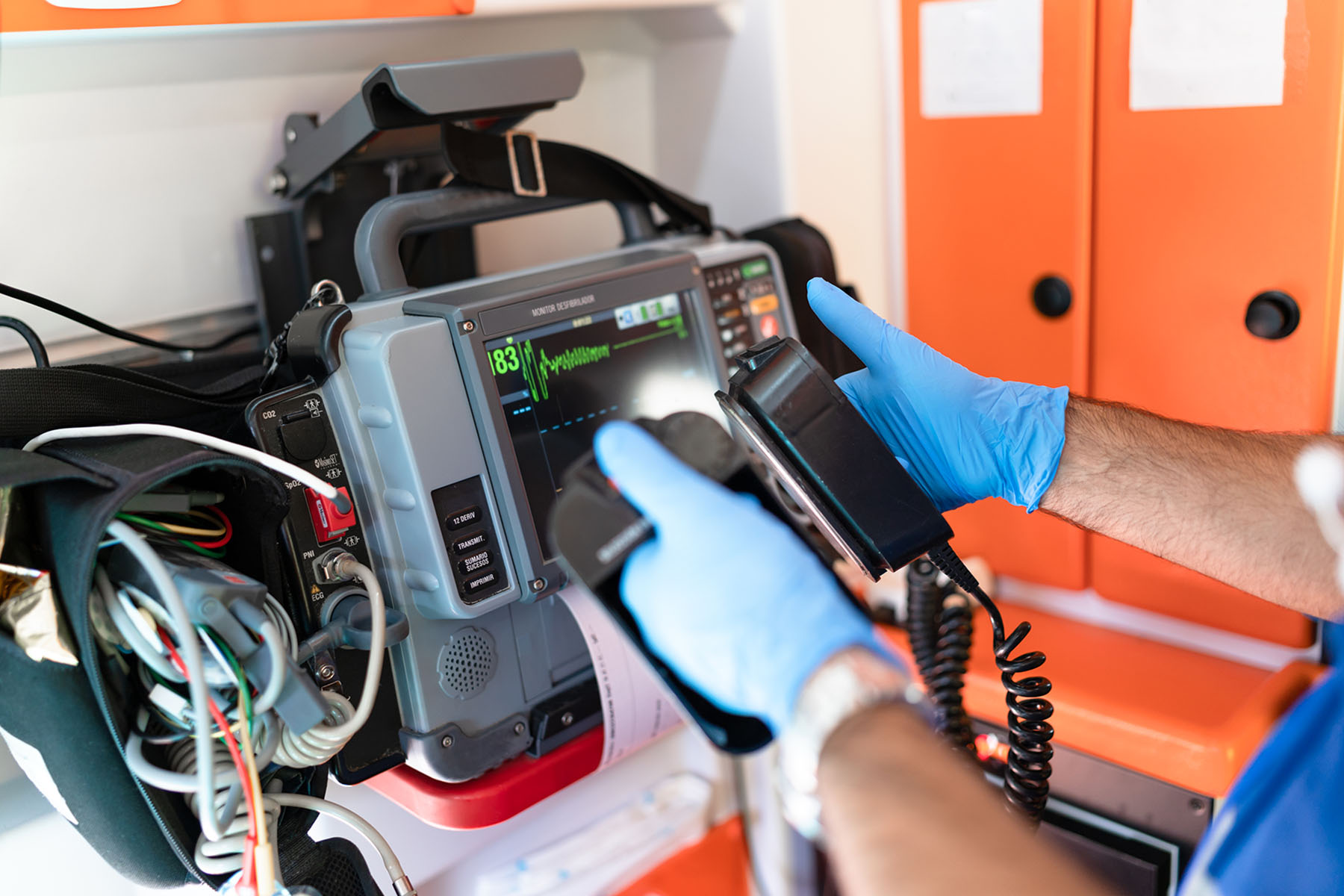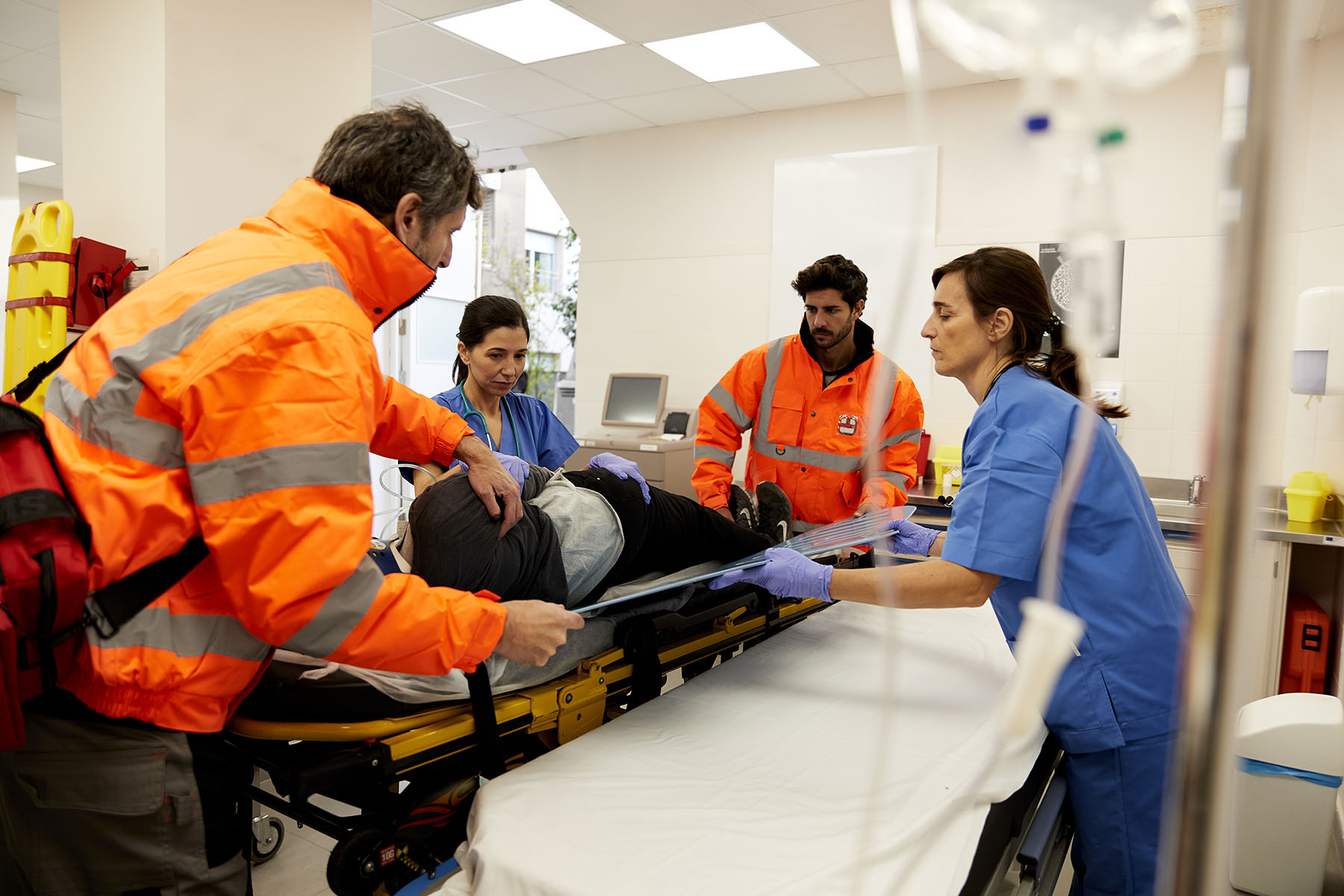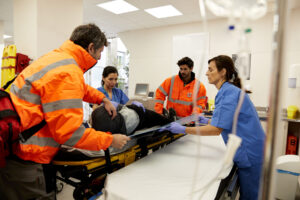Spain’s healthcare system is one of the world’s best. What’s more, visiting the doctor in Spain is free for almost everyone living and working in the country.
However, with both private and state services widely available, finding the right doctors in Spain can be tricky. This guide will help you get to know the Spanish healthcare system so you can register with a doctor in no time.
Sections include:
- Doctors in Spain
- Who can access the doctors in Spain?
- Finding a doctor in Spain
- Registering with a doctor in Spain
- Making an appointment with doctors in Spain
- What to expect when visiting a doctor in Spain
- Medical specialists in Spain
- Cost of doctors in Spain
- Health insurance in Spain
- Private doctors in Spain
- Doctor prescriptions in Spain
- Medical tests in Spain
- Emergency doctors in Spain
- Making a complaint about doctors in Spain
- Useful Spanish medical phrases
- Useful resources
Cigna Global
Want access to the best private medical services in Spain? Speak to the healthcare professionals at Cigna Global today and find a policy that’s right for you. Take advantage of their global network of doctors, specialists, therapists and more with coverage tailor-made for you and your family. If you’re starting a new life in Spain, get peace of mind with Cigna Global.
Doctors in Spain
The healthcare system in Spain (el sistema national de salud) provides high-quality care in Spanish hospitals (hospitales) and medical centers (centros de salud). The system has two tiers – offering both public and private care, often at the same center.
An extensive national system provides free health care for around 90% of residents. The system receives funds partially from Spanish social security (seguridad social) contributions, deducted from your wage. Prescriptions are also partially subsidized by the state, with the amount varying by region.
However, it is also possible to go private, either paying costs upfront or through private health insurance in Spain. Many expats opt for private care, and it may be necessary if you cannot access state healthcare. You can find and compare providers on websites such as Mobi Doctor and SaludOnNet.
The regulation of the healthcare system and doctors in Spain is decentralized and managed by each of the autonomous communities. That said, the Inter-territorial Council of the Spanish National Health Service (Consejo Interterritorial del Servicio Nacional de Salud de España, CISNS) oversees the system and assures the medical rights of citizens.
Who can access the doctors in Spain?
Almost everyone living and working in Spain can access free state healthcare. To receive a medical card you must first apply for your Spanish residency permit (empadronamiento) with the municipality (junta).
Children, those studying, unemployed, or retired are also entitled to free healthcare, either through the Spanish state or your home country. The social security office – Instituto National de la Seguridad Social (INSS) – can provide more information. In addition, for those who have been registered in Spain for over a year, but are not entitled to cover, you may be able to join the pay-in health insurance scheme called the Convenio Especial.
As an expat, you can get free state healthcare if you are:
- a resident in Spain and work in employment or self-employment in Spain and pay social security contributions;
- living in Spain and receiving certain state benefits;
- a resident in Spain and recently divorced or separated from a partner registered with social security;
- under 18 and a resident in Spain;
- a pregnant woman who is a resident in Spain;
- under 26 and studying in Spain – you can apply for a student EHIC which entitles you to cover for longer;
- receiving a Spanish state pension
If you are in Spain temporarily, you may also be covered short term – either by your European Health Insurance (EHIC) card, or by the bilateral agreements Spain has with some other nations including Andorra, Brazil, Chile, Ecuador, and Peru.
In other cases, you will need private health insurance or have to pay for medical costs yourself. It’s good to know, however, that the cost of medical treatment in Spain is relatively low.
Finding a doctor in Spain
Doctors in Spain may work in a health center (centro de salud or centro de asistencia primaria) or in individual practice as a general doctor (médico de cabecera). You can find a doctor in a number of ways, including:
- personal recommendations
- through your embassy
- in the phone book under medicos
- from your local healthcare authority
Private practices can advertise their services and compete for customers. It is a good idea to check the services they provide and the costs before you register.
To be sure, you can search to ensure that your doctor has received a medical degree and is a member of the Spanish Medical Association on the Organización Médica Colegial de Espana website.
Finding an English-speaking doctor in Spain
Spain has a big expat and tourist population, so there are plenty of English-speaking doctors available. The British government has an extensive list of English-speaking doctors, covering Madrid, Málaga, Barcelona, Alicante, and the Canary Islands.
Registering with a doctor in Spain
Before you can make an appointment to see a doctor in Spain, you must register with a local doctor. Take note that doctors may offer both state and private consultations and treatments, so make it clear which type you require.
When you register, you should be given a leaflet called Carta de Derechos y Deberes (Charter of Rights and Obligations) setting out your rights as a patient.
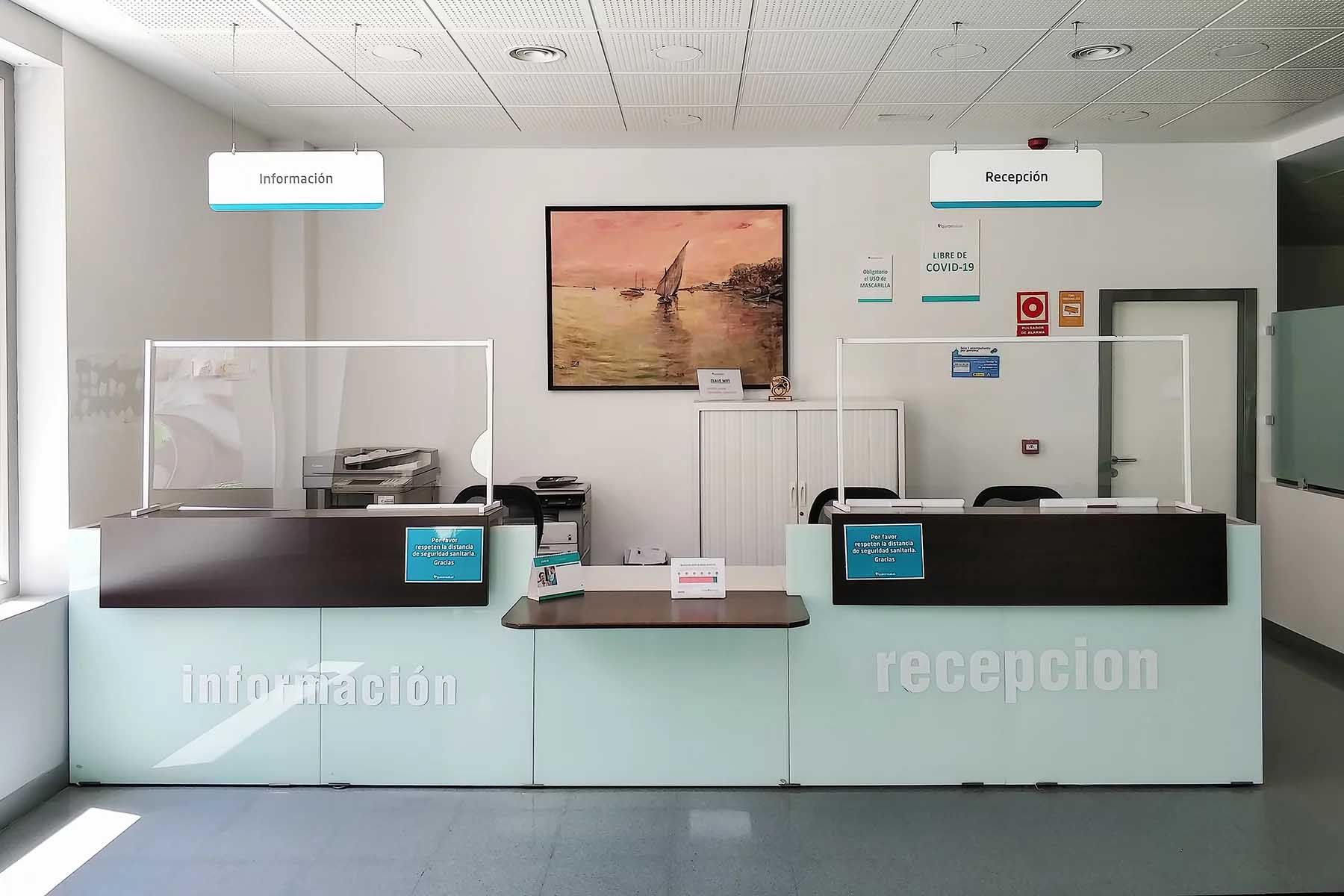
After you register with your local health center or doctor, you will receive a SIP (Sistema de Informacion Poblacional) health card. Make sure to carry this with you as you will need to show it whenever you access state healthcare services or treatments. This will ensure that you will not be charged any fees for going to the doctor in Spain or visiting a Spanish hospital.
Making an appointment with doctors in Spain
Once you have registered, you can make an appointment with a doctor in Spain, sometimes even on the same day. Generally, opening hours are from Monday to Saturday, from 9:00 to 17:00.
Most doctors have both telephone and online appointment systems, while others work on a first-come-first-served basis. However, even with an appointment, you may have to wait when you arrive if your doctor is state-funded, as patients with the highest priority are seen first.
Whenever you visit a doctor or hospital in Spain make sure to take your public health card or proof of your insurance.
What to expect when visiting a doctor in Spain
In general, in large towns and cities, medical centers and health clinics often offer a range of family and general practitioner services, including pediatrics and nursing, as well as midwives, social workers, and physiotherapists. Even small villages will have a doctor or nurses, although they may only be available on specific days. Children going to the doctor in Spain will see a pediatrician until age 15.
See our guide to children’s healthcare in Spain.
In larger health centers where there are several doctors working together, it may not be possible to see the same doctor every time. However, in some centers, you may be able to book an appointment with the same doctor for continuing treatment for a specific health issue, if you wish.
It is worth bearing in mind that not all doctors will speak English, particularly if you are visiting a public health center. Some doctors may refuse to treat non-Spanish-speaking patients without an interpreter as they say it can double the diagnosis time.

If you don’t speak Spanish, some practices and hospitals – especially in more touristic areas – may be able to provide an interpreter for you, for which there will be a charge. Costs vary but expect to pay in the region of €10–15 per hour. In private hospitals and practices, there is almost always some English-speaking medical staff.
Medical specialists in Spain
As Spain has world-class medical care, you will be able to see almost any specialist you need. To see a specialist in Spain, you will need a referral from your doctor. With private insurance, you may be able to visit a specialist clinic directly, as long as the clinic is approved by your insurance company.
If you are struggling with your mental health, doctors can also refer you for specialized treatment. The Confederacion Salud Mental offers help and advice.
Cost of doctors in Spain
Being registered with the national health system means that a visit to the doctors in Spain is free, as are non-elective treatments.
Without state or private cover, the costs of visiting the doctors are on average:
- Initial consultation: €40
- Blood tests: €80
- Specialist: €80-150
- One-day hospital stay: €200
Health insurance in Spain
Although the Spanish healthcare system is rated very highly, it still faces criticism over long waiting times for appointments and treatments. Because of this, many expats prefer to take out private health insurance. The main international insurance companies offering coverage packages for expats include:
Medical cover usually costs around €50-€120 a month, depending on the level of cover. When making an appointment, call your insurance company first to let them know you are seeking medical attention. The costs of the treatment will be passed to your insurer, providing you show your insurance card at your appointment.
Private doctors in Spain
Although the majority of healthcare is state-funded, there are still many private doctors in Spain. Typically, private practices have shorter waiting times for appointments. You are also more likely to find English-speaking doctors if you go private.
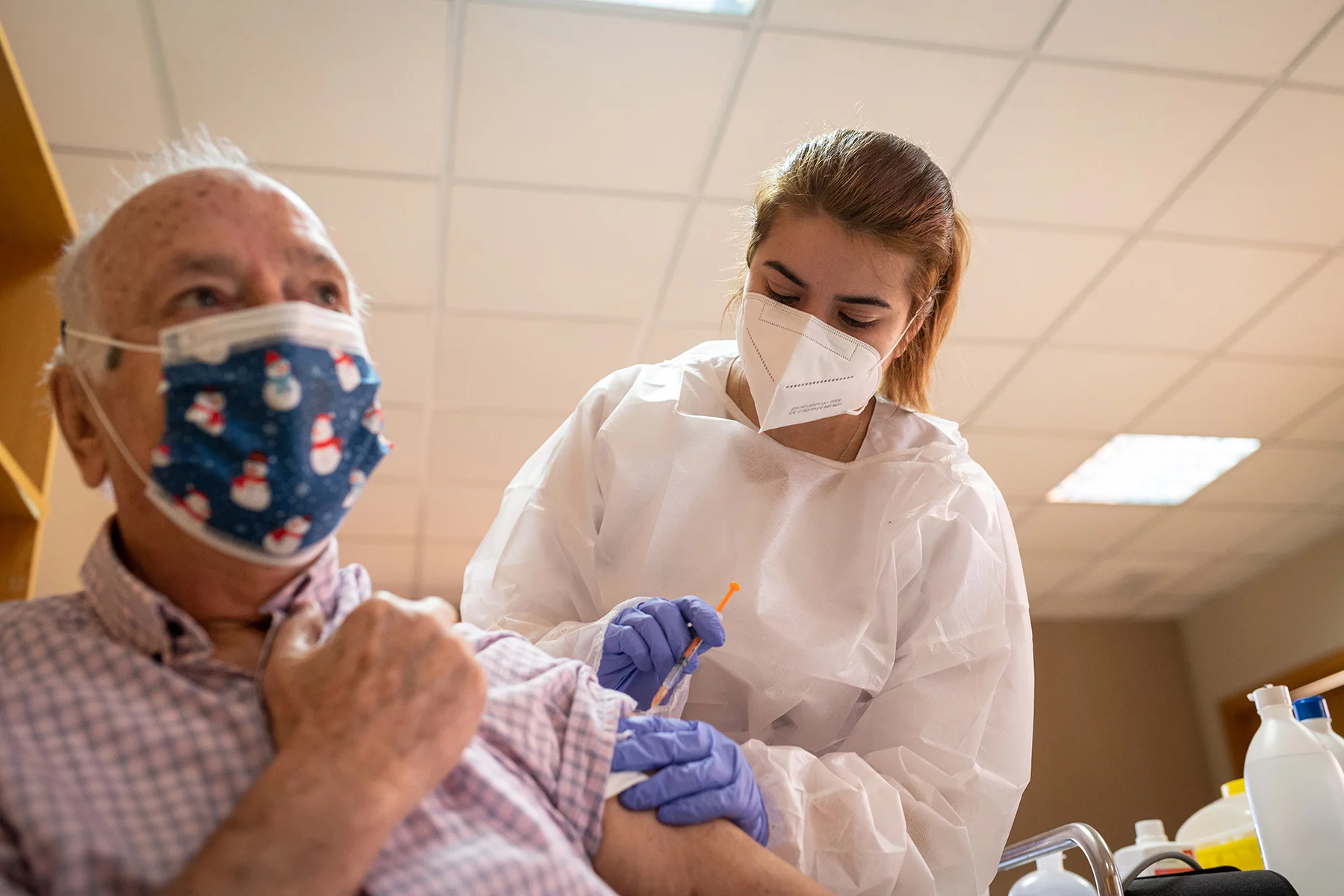
Some private doctors in Spain often operate out of the same medical centers and hospitals as public doctors, others are located in private centers or hospitals.
Doctor prescriptions in Spain
Although visiting the doctor is free, you will be required to pay a proportion of your prescription costs. The amount you pay varies depending on your annual income and social situation. Below is a breakdown of what you are expected to contribute:
- €18,000 or less and of working age: 40%
- state pensioner and €18,000 or less: 10% (maximum of €8 a month)
- €18,000 – €100,000 and of working age: 50%
- €18,000 – €100,000 and a state pensioner: 10% (maximum of €18 a month)
- More than €100,000: 60% (maximum of €60 a month for pensioners)
Medical tests in Spain
During your appointment, doctors may need to order a medical test, such as a blood test. For tests not done in-house, you will be given a letter indicating which tests are needed and sent to a local clinic – such as a blood analysis clinic.
Emergency doctors in Spain
For a minor physical emergency injury it is best to visit your local Urgencia. If you need medication urgently, you can make an emergency appointment with your Health Center, where they are able to give prescriptions.
For more serious emergencies you should call 112 or visit the accident and emergency department (Departamento de Emergencias – ED) of the hospital registered for the district where you live. In case you are away from home and need emergency care, it’s worth keeping in mind that some hospitals only take fee-paying patients.
Making a complaint about doctors in Spain
If you are not happy with the treatment you have received from a doctor or health service, you have a number of options:
- Fill out an Hoja de Quejas y Reclamaciones – complaints and claims form – at your medical center.
- Write a letter to the Servicio de Atención a Pacientes y Usuarios – the complaints department – of the relevant hospital.
- Submit a complaint to the local authority (Junta). In this case, you must send a copy of the complaint to the health center and one to a ‘registro general‘ in your town. Ask your town hall (el ayuntamiento) for details.
Useful Spanish medical phrases
- I need an ambulance: Necesito una ambulancia
- Accident: Accidente
- I need a doctor: Necesito un medico
- I have an allergy: Tengo una alergia
- Emergency: Emergencia/Urgencia
- I’ve got a pain here: Me duele aquí
Useful resources
- Departmento de Salud – Department of Health
- Organización Médica Colegial de Espana – Spanish Medical Association
- Farmacias de Guardia – Online directory of pharmacies in Spain
- Seguridad Social – The Spanish social security office



